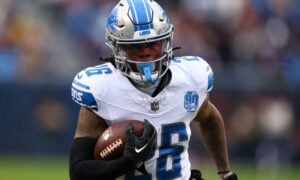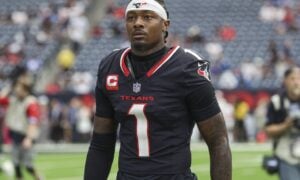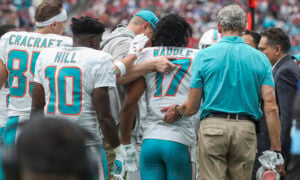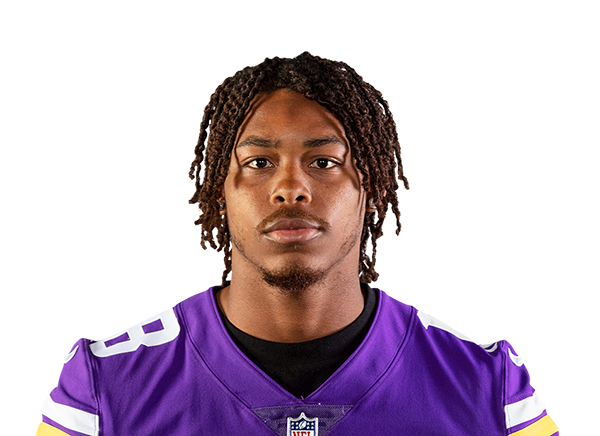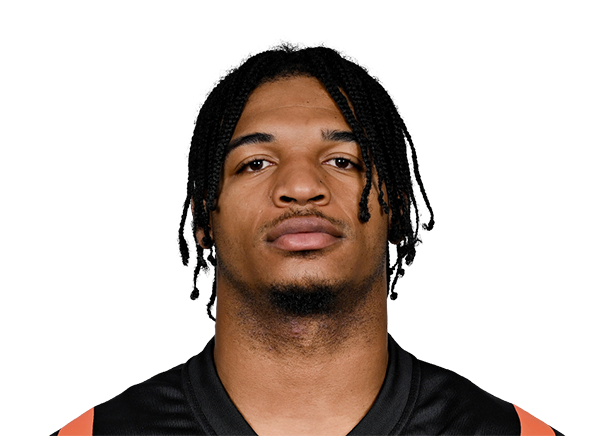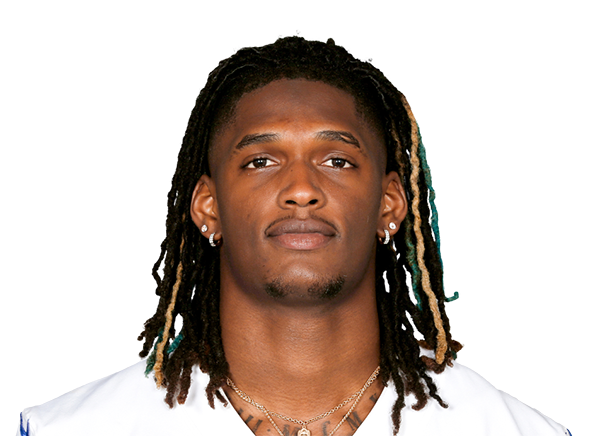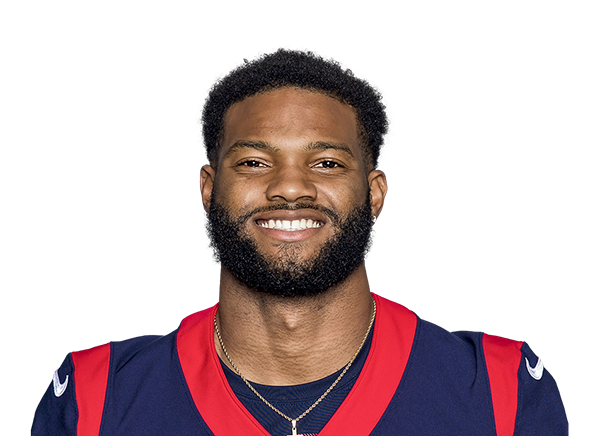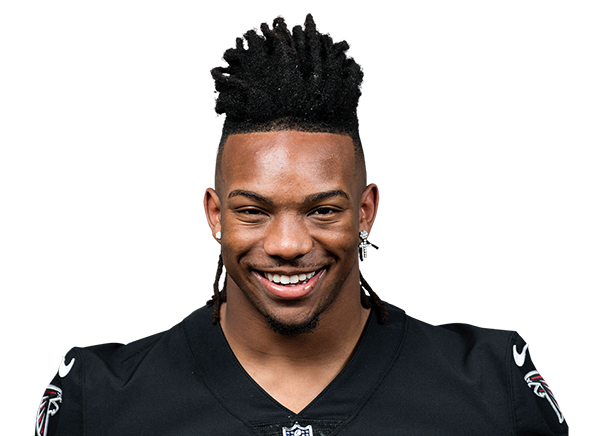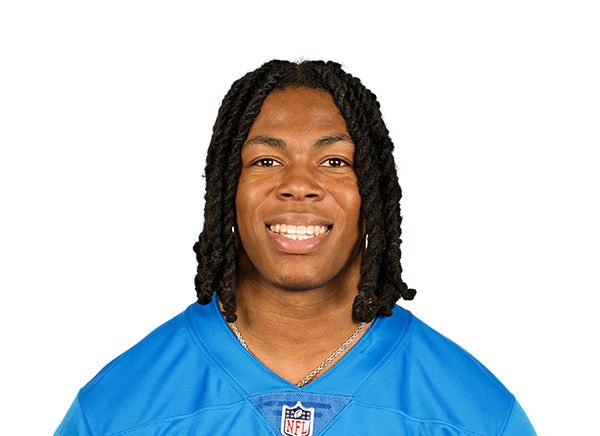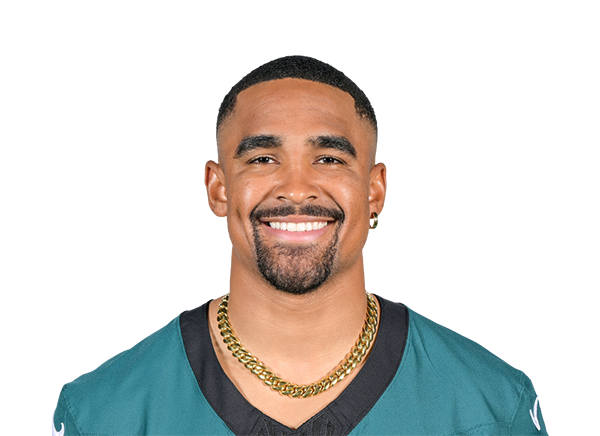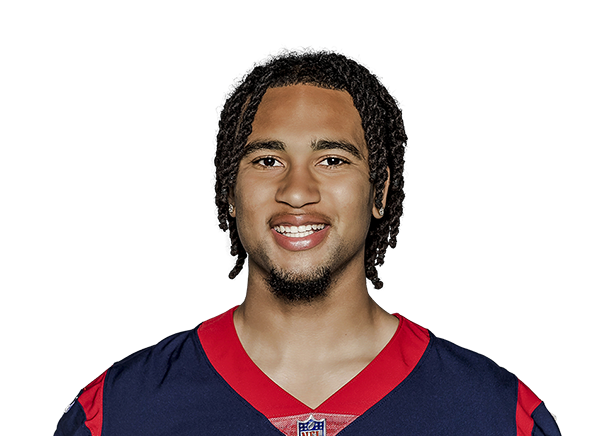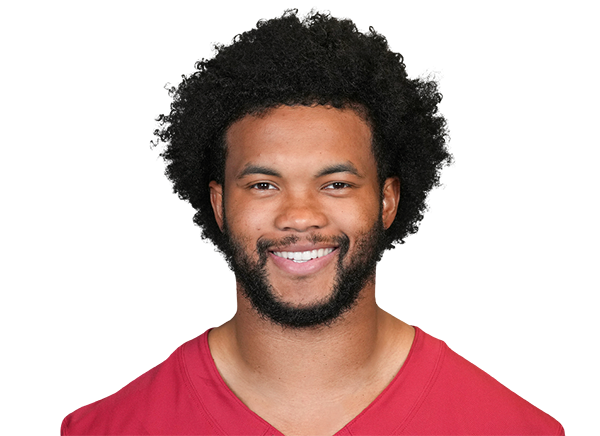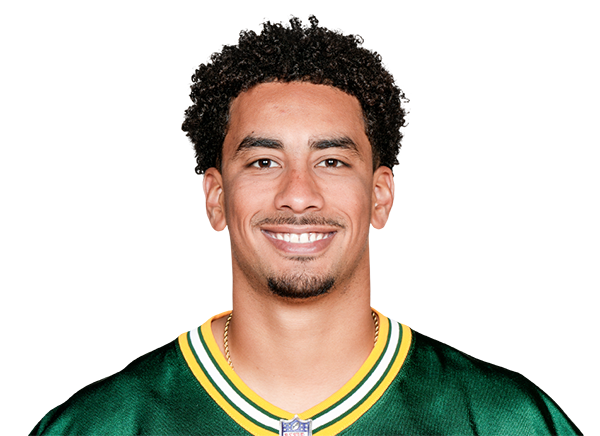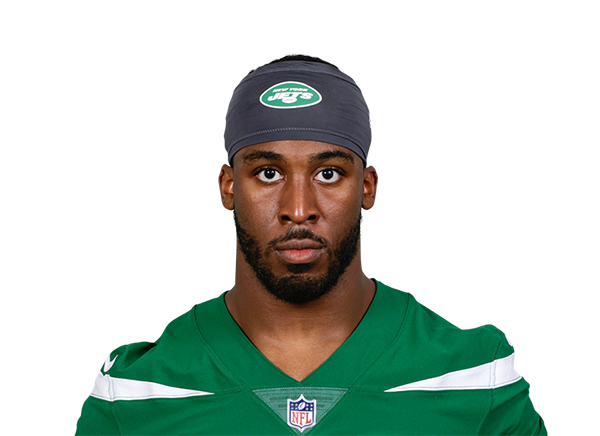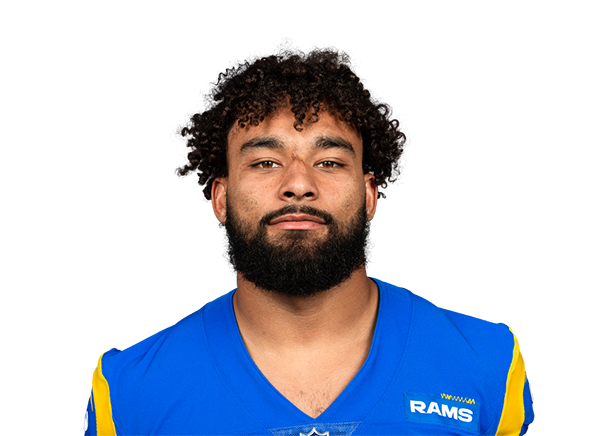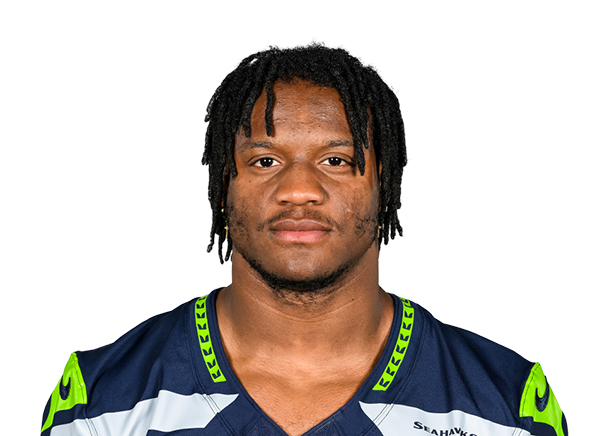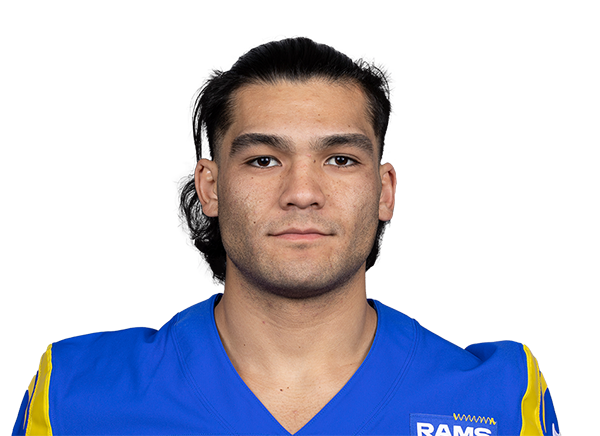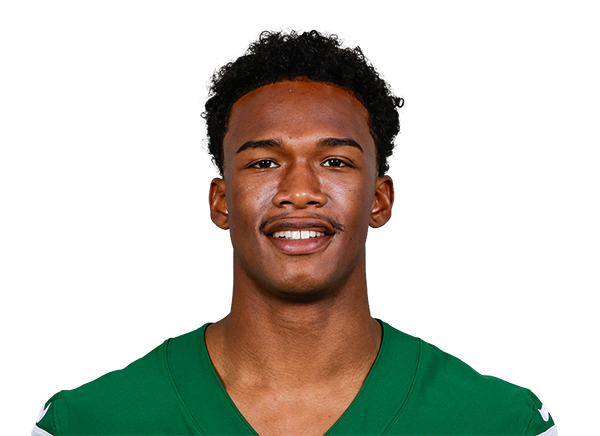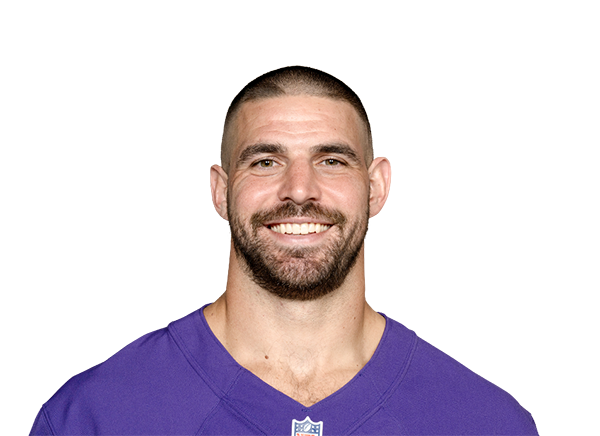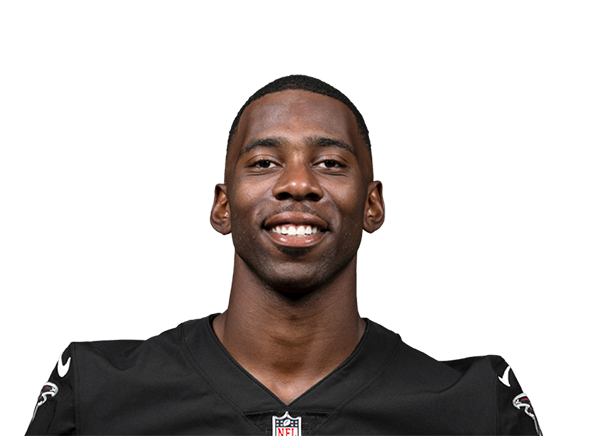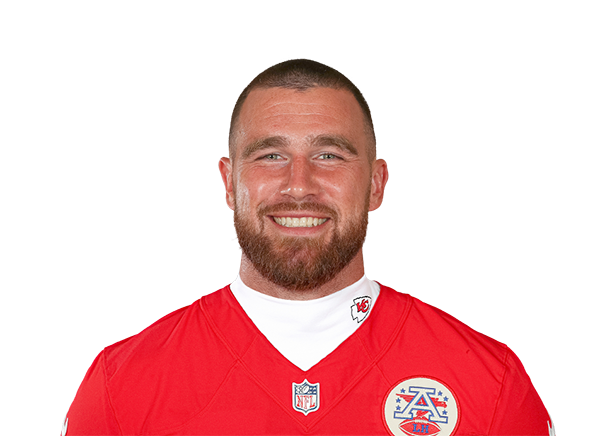Dynasty Debate: Potential Points
One of the great things about Dynasty Twitter and forums like the DLF forum is that they are place for people to debate various things about dynasty leagues. The more common debates revolve around players like Andrew Luck vs Cam Newton or David Johnson vs Le’Veon Bell. One of the things that can be even more fun that player debates are the validity of various dynasty rules and settings. In this article, DLF writers Nathan Powell and Adam Tzikas will debate whether potential points should be how draft order is determined in rookie drafts.
Nathan opening statement
Everyone has dynasty rules that they love and they want in every single league, and on the inverse, everyone has rules they want to avoid in leagues they join. One rule I tend to avoid in dynasty leagues is Potential Points. Potential points is a rule implemented to prevent tanking in dynasty leagues, which I agree, that is one of the effects of potential points, but there are also more important things that it hurts. Whenever someone starts a rebuild, often times, the first move people make is turning the top assets on the team into multiple assets, whether they be unproven/upside players or future picks. For me, potential points discourages players from rebuilding with depth.
I’m a big proponent of using the same formats for determining winners as losers. Your bench and your bench players are never going to have an impact on your regular season or even playoff game, so why should your bench impact where your draft pick falls?
Another frustrating part of potential points is that it hurts players who struggle with making weekly lineup decisions twice. If you are always the guy who picks the wrong wide receiver upside play, not only is that hurting you by losing you games during the season, but that score you aren’t benefiting from is hurting you more once it comes down to potential points at the end of the season.
Lastly, the thing that frustrates me most is people complaining about the worst team not getting the No. 1 overall pick, with how most seedings and playoffs are set up, it is far from guaranteed the best team wins the championship each year. So if we aren’t worried about the best team winning the championship, why are we worried about the worst team getting the first pick?
Adam opening statement
Being a commissioner is easily the hardest job in the fantasy world. You have to deal with all manners of people, from the evil to the angels and every type in between. Now add in the randomness of football and the plot thickens. Want to throw it all into complete chaos and anarchy? Add real life money to the mix, now it’s become its own beast. Not even mentioning that in dynasty fantasy football, sometimes it’s better for your future if you lose. It’s no secret that the first pick in a rookie draft is often more valuable than the last half combined. How does one give themselves the absolute best shot to get that first pick? Well they make sure they lose. Notice how I didn’t use the T word (It’s “tanking” if you aren’t following along). I believe there is a line in the sand between tanking and using the rules to your advantage when rebuilding, you paid money to join this league, and you should have the power to better your team.
Let’s get back to the commissioner for a second. How does he or she defend from the dark spectre of tanking? They could write clear and concise rules to prevent it and add penalties for teams that they deem are tanking. While that’s a novel idea, there’s a level of subjectivity in play here. Who determines when an action is considered against the anti-tanking rules? Sure, there are obviously blatant things that any owner could see is tanking, and those should be penalized fully for their transgressions, but what if the actions are in a grey area? What if an owner “honestly” (using quotes in a sarcastic manner) thinks that Cordarrelle Patterson is going to outscore Odell Beckham this week? Maybe they have a “gut” feeling about it. Can someone 100 percent say they are doing that on purpose? Probably, but we are deep into the waters of subjectivity here.
So you’ve got these great rules in the bylaws that state “Starting injured or bye week players is not allowed” and that’s a really great first step, but how would you get shady lineups in order if you want to remove subjective opinion from the equation? There is a simple answer and it’s by using Potential Points to determine draft order for non-playoff teams. Potential points calculate what would have been your best possible lineup, including your bench, for that week; even if you started all terrible players, you wouldn’t be affecting your draft order. This is handled automatically by MFL and there is zero subjectivity here. The overall worst team in the league gets the first pick. This also ensures that owners still set good lineups (since doing otherwise means nothing) and head to head games aren’t affected. If you take our first rule, add potential points and some lineup restrictions (mandating full lineups), we’ve give commissioners an excellent first line of defense from tankers the world over.
Nathan Rebuttal
The one thing that I think gets overlooked in Adam’s central point is that it assumes all owners have the possibility of tanking and aren’t honest fantasy players. It isn’t always easy, but as a commissioner, my number one duty when inviting owners to a startup or finding replacement owners is to find honest owners who will play the right way. If there is someone in my league who would tank or is tanking, that’s a person that I don’t want in my league. While assuming the worst out of people may be the “safe” way to do things, I choose to trust people, especially ones I have experience interacting with, until proven otherwise. So, while potential points eliminates any benefit from the possibility of tanking, I think that the disadvantages that potential points present outweigh the benefits.
The “gut” call can often be a defense for choosing player X over player Y even though most fantasy players would start player Y, however I think there is a clear line between what can be a gut call and what is obvious tanking, like benching Odell Beckham Jr. for Cordarrelle Patterson.
Lastly, there can be a difference between the worst lineup and the worst team, and if the lineup and not the team tells us how good the team is, the same should be the case for determining how bad a team is.
Adam rebuttal
I think Nathan’s first point is a decent one but it’s quite flawed. While yes, depth is an important aspect of building a successful dynasty roster, if you have strong depth, you should be a strong team overall. If you have bench guys that are putting up numbers that would impact your potential points that much, you have a likely decent team. This plays into Nathan’s second point that you get hurt twice if you are bad at sit/start. While the math there is sound, again it’s missing the overall point that if you have players scoring well, you don’t have a bad team and should not be in the running for an early pick. There are projections aplenty on the web free and paid that help with sit/start, not to mention all the forums and twitter people that will help with setting lineups, even if you are the worst at it, you can still get better or get help.
Nathan’s final point is his best one. It’s true, the best team won’t always win the championship but likely they are in a place to make a run the following years. Whereas, the worst team’s only saving grace is getting an early pick. Someone recently wrote an article here at DLF that deals with assets and how having more puts you in a place to succeed long term. A rebuilders best asset is getting an early pick, while the “best” team likely has many to choose from. If you want an automatic, completely objective way to determine draft order, potential points are the easiest and quickest thing a commissioner can do.
- Deep Dynasty Stashes from Every NFC Team - September 1, 2024
- 2023 NFL Scouting Combine: Defensive Player Dynasty Review - March 13, 2023
- 2022 NFL Scouting Combine: IDP Dynasty Review - March 10, 2022





